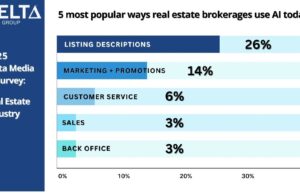Budget plan outlines Administration effort to streamline, strengthen HUD programs to support a growing economy
WASHINGTON, DC – February 13, 2012 – (RealEstateRama) — U.S. Housing and Urban Development (HUD) Secretary Shaun Donovan today unveiled HUD’s fiscal year 2013 budget proposal. Titled Housing and Communities Built to Last, the budget reflects the President’s vision of an America that can draw strength from its vibrant communities and momentum from a robust housing market. Read HUD’s proposed FY 2013 budget.
“As the President made clear in his State of the Union address, this is a make or break moment for the middle class– both for those who are in it and for those who aspire to it, said Donovan. “What’s at stake is the survival of the basic American promise – the idea that if you work hard, you can do well enough to raise a family, own a home in a strong, affordable neighborhood, and put a little away for retirement. This budget request reflects the President’s vision, but also reflects the reality that robust growth requires tough choices – doing more with less and holding ourselves accountable for results.”
The Administration’s overall budget outlines the President’s commitment to ensuring every American gets a fair shot, everyone does their fair share, and everyone plays by the same rules. For HUD, that includes:
- Giving Hard-Working, Responsible Americans a Fair Shot – by helping responsible homeowners; by maintaining the Department’s commitment to core rental assistance programs; and by reducing the number of homeless veterans on our streets;
- Ensuring Everybody Plays By the Same Rules – by establishing a Homeowner Bill of Rights; and by bringing HUD-assisted housing into the mainstream of real estate finance;
- Creating New Jobs Here in America to Discourage Outsourcing and Encourage Insourcing– by maintaining funding for job-creating programs like the Community Development Block Grant; and by helping regions reduce the combined cost of housing and transportation to attract private investment and speed economic growth.
- Reforming the Federal Government So It’s Leaner, Smarter, and More Transparent– by streamlining bureaucracy and identifying savings in our largest rental programs; and by making the agency more accountable for results through continued Transformation Initiative investments and the innovative HUDStat performance measurement system.
An economy that meets the needs of the future requires a federal government that is streamlined, transparent and efficient. This budget continues this Administration’s work to transform how HUD, and the federal government as a whole, does business so that state and local government, private sector, and individual Americans have a real federal partner accountable for measurable outcomes.
HUD’s FY2013 budget includes several proposals to improve the efficiency and effectiveness of HUD programs:
- By merging its Public Housing Operating and Capital Fund programs into a single subsidy stream, HUD proposes to reduce the administrative burden on state and local public housing authorities that provide safe and sanitary housing for 1.1 million of the nation’s poorest families.
- This budget request also outlines a proposal to streamline and enhance the Family Self-Sufficiency program. HUD’s plan would allow PHAs to connect residents in public housing – as well as those who receive housing choice vouchers – to resources and services to find and retain jobs that lead to economic independence and self-sufficiency.
- The budget also includes a series of reforms to HUD rental assistance programs that save over $500 million in 2013, without reducing the number of families served – including capping annual increases to Project Based Rental Assistance subsidies; aligning the minimum rent policy across HUD-assisted households; and simplifying how HUD administers deduction for medical expenses.
HUD’s FY2013 budget also reflects the need to ensure that America’s future isn’t built on a mountain of debt. As a down payment toward reducing the deficit, the 2011 Budget Control Act capped discretionary spending for the next ten years, cutting the deficit by $907 billion over 10 years and bringing non-security discretionary spending to the lowest share of the economy since President Eisenhower. HUD’s proposed budget achieves substantial results for vulnerable people and distressed communities in the new fiscal environment. The budget:
- Maintains housing assistance for all families currently receiving rental subsidies;
- Serves almost 2.5 million families living in public housing and project-based Section 8 developments (over 60% elderly and disabled);
- Supports tenant-based vouchers for more than 2.2 million families (over 45% elderly and disabled);
- Provides 10,000 new vouchers to homeless and funds 5,300 more supportive housing units for the elderly and disabled;
- Enables FHA and Ginnie Mae to continue crucial, temporary countercyclical role, with 1.2 million single family mortgages expected in 2013 and $239 billion in new GNMA guarantees;
- Brings private capital back to the market through FHA premium increases and other measures;
- Assists nearly 5.5 million households, over 82,000 more than at the end of fiscal year 2011; and
- Creates or retains 423,000 jobs directly and 360,000 more jobs indirectly.
Added Donovan, “In this new fiscal environment, every department shares a responsibility to make tough cuts so there’s room for investments to speed economic growth. That’s why, while this budget makes those critical investments—from growing neighborhoods of opportunity through our Choice Neighborhoods initiative to restoring Sustainable Communities planning grant funding—it also includes new savings proposals and some very difficult choices we would not have made in a better fiscal environment.”
###
HUD’s mission is to create strong, sustainable, inclusive communities and quality affordable homes for all.
HUD is working to strengthen the housing market to bolster the economy and protect consumers; meet the
need for quality affordable rental homes: utilize housing as a platform for improving quality of life; build
inclusive and sustainable communities free from discrimination; and transform the way HUD does business.
More information about HUD and its programs is available on the Internet at www.hud.gov and
http://espanol.hud.gov. You can also follow HUD on twitter @HUDnews, on facebook at
www.facebook.com/HUD, or sign up for news alerts on HUD’s News Listserv.
Contact:
HUD Public Affairs
(202) 708-0685














